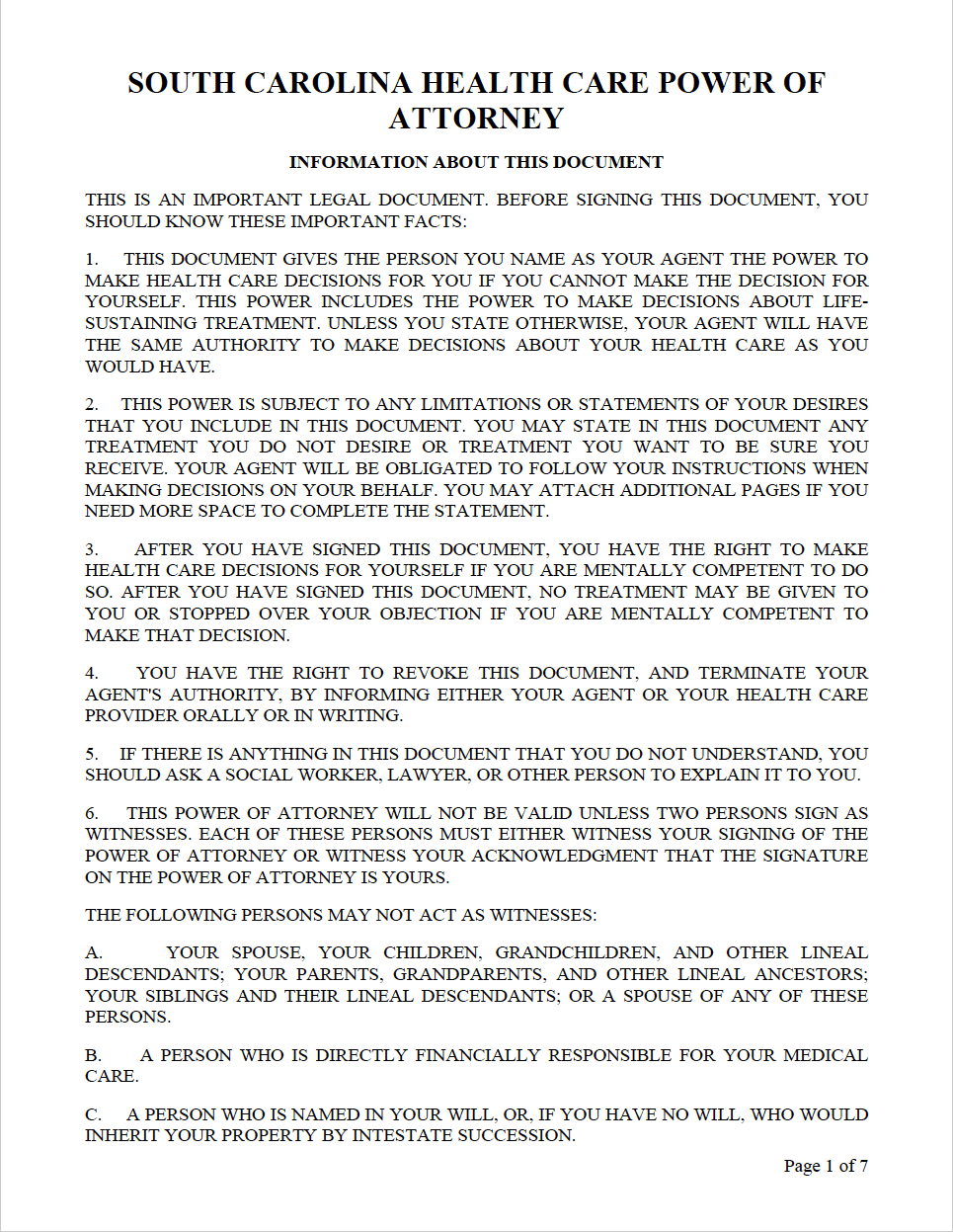South Carolina Medical Power of Attorney Form
A South Carolina medical power of attorney is a form that gives an agent authority to make medical decisions for a principal if they cannot themselves. The agent must abide by any rules or limitations provided by the principal in the document. For example, the principal may include their preferences for life-sustaining treatment, medication, surgery, artificial nutrition and hydration, or other health care. A physician must confirm that the principal has become incapacitated before the agent can authorize or deny treatment on their behalf. Terminal illnesses, such as cancer or dementia, often result in incapacitation. Accidents that cause severe brain or spinal injuries can inhibit a principal’s ability to think on their own, as well.
The physician and health care team cannot refuse treatment, even if they feel that another approach would be better for the principal. Similarly, the agent must always make choices that align with the principal’s wishes in this medical power of attorney. If the principal has not outlined their preferences for a particular treatment, then the agent must choose the best option possible. They can discuss treatment with the health care team and determine what will benefit the principal most. The principal, agent, and physician should review this document together. Each party should receive a copy and store it in a safe place.
The principal must assign an agent (and alternate agents) over the age of eighteen (18). They must be mentally sound and confirm that they can make rational decisions for the principal, even under pressure or stress. The agent and alternate agents cannot be the principal’s doctor or the doctor’s employee or spouse. However, the employee or spouse can be the agent if they are a relative of the principal.
Laws: Title 62, Article 5, Part 5 & Title 44, Chapter 77
Signing requirements (§ 62-5-503(3) & § 44-77-40(2)): Two (2) witnesses and Notary Public required. The witness cannot be the spouse (of principal or child, grandchild, parent, grandparent, sibling), child (or grandchild); parent (or grandparent); sibling; person who handles medical care finances; person who is in will or would inherit property; life insurance beneficiary; agent or successor agent; physician (or physician’s employee); or person with an estate claim (or whom the principal owes money).
